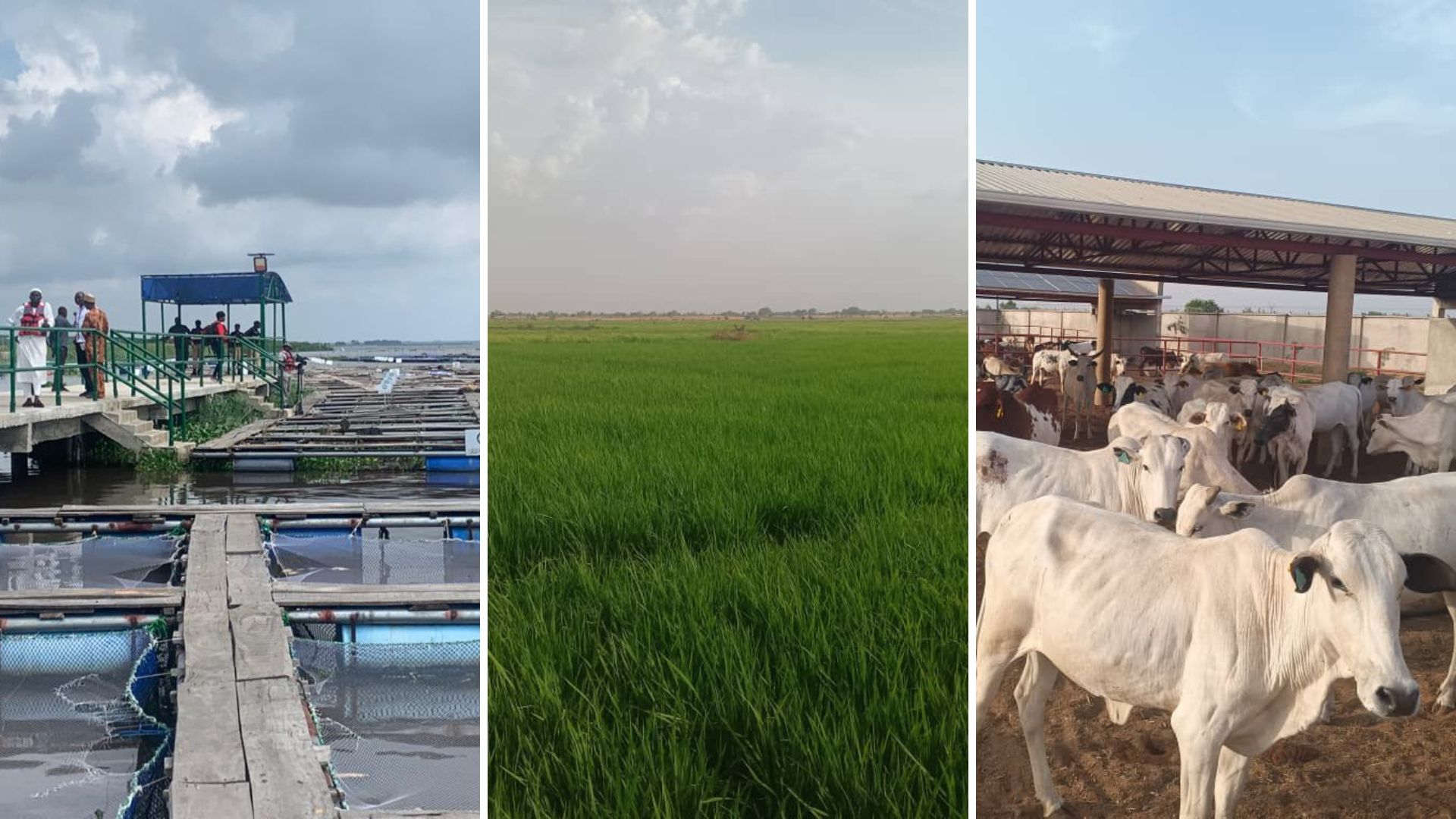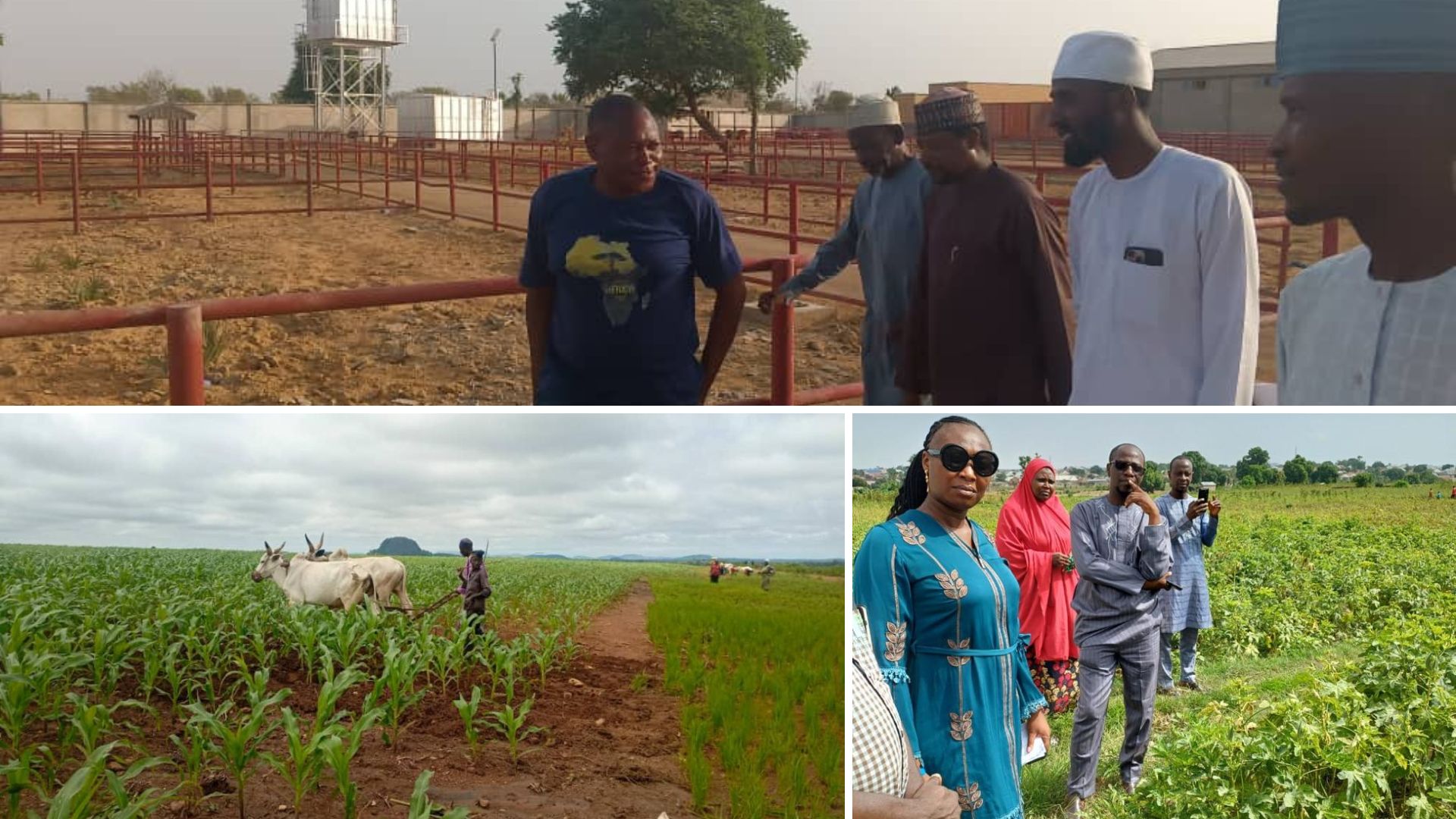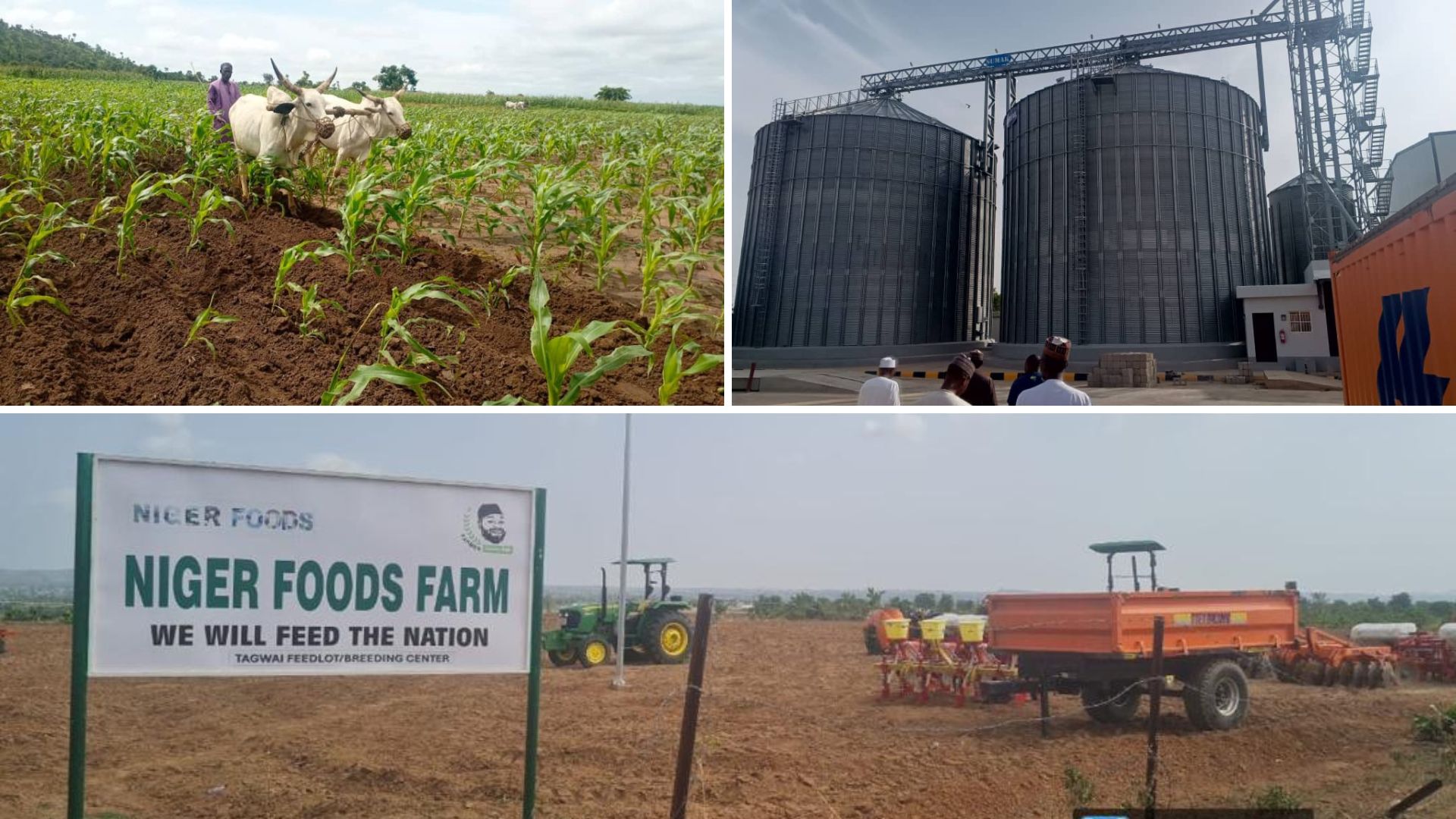Nigeria’s food systems pathway begins to bear fruit
A nationwide push to grow more and better food at home and attract young people to agriculture is beginning to transform Nigeria’s food systems.

When Nigeria launched its national food systems transformation pathway in 2021, the ambitions were vast, but the resources were limited. With millions of citizens facing food insecurity and rising cost of living, compounded by climate related challenges and conflicts, the country urgently needed practical solutions.
Now, four years later, momentum is building. Nigeria has unveiled its implementation strategy for the pathway, outlining how the country will address the 78 priority actions it presented at the 2021 UN Food Systems Summit. In this context, with support from the Startup Funds for Food System Transformation Pathway Implementation, facilitated through the UN Food Systems Coordination Hub, Nigeria is accelerating the implementation of its food systems pathway—from household gardens to high-tech megafarms.
At the heart of this effort are three flagship initiatives designed to meet people where they are: Operation Feed Yourself, which empowers families to grow their own food; a campaign to establish farm estates that attract young people to agriculture through opportunity and modern tools; and a nationally coordinated effort to routinely collect and share weather and soil data to inform seasonal food production planning. Together, these programs reflect a broader national effort to turn policy into practice – one that’s gaining traction in communities across the country.
A journey of dialogue, planning and action

Nigeria’s food systems journey began with more than 40 national and local dialogues in 2021, held in response to the UN Secretary-General’s call for Member States to rethink how food is produced, consumed, and governed. These conversations laid the foundation for a 78-point transformation pathway submitted to the UN later that year.
The pathway is guided by six key goals to be achieved by 2030: reducing poverty; reducing youth unemployment; reducing hunger, food insecurity, and malnutrition; reducing food imports while promoting sustainable food trade; increasing the Women’s Empowerment in Agriculture Index score; and improving the Environmental Performance Index score.
Since 2021, key milestones have included the development of a national action plan, a strategy for implementation, and extensive consultations with all 36 states and the Federal Capital Territory. By 2023, Nigeria had evaluated its progress, mapped food system initiatives across the country, and begun implementing practical projects on the ground.
A National Steering Committee – tasked with ensuring success of the action plan, convened stakeholders sessions across Nigeria’s six geopolitical zones, which plays a central role in guiding implementation, sharing lessons between states and ensuring political buy-in at all levels.
“Transforming our food systems isn’t just a federal agenda—it’s a shared national responsibility,” said Dr. Sanjo Faniran, Nigeria’s National Food Systems Convenor. “From the smallest household garden to national policies, every effort matters. Our goal is to ensure that every region is actively engaged, every community feels ownership, and every action moves us closer to a healthier, more resilient country.”
Operation Feed Yourself: Food security starts at home
One of Nigeria’s most visible initiatives is Operation Feed Yourself, a modern revival of the idea that every household can be part of the solution to food insecurity.
The program encourages families to grow vegetables, fruits, poultry, and groundnuts around their homes – regardless of whether they live in rural villages or dense urban neighborhoods. It offers tailored support depending on location and income, providing technical assistance, subsidized tools, and guidance via radio, phone apps and local community leaders.
The initiative aims to improve household diets and reduce pressure on overstretched food supply chains by encouraging self-sufficiency at the community level. To support producers, the Federal Government – through Nigerian Meteorological Agency (NiMet) and the Federal Ministry of Agriculture and Rural Development (FMARD) – provides weather and soil data along with technical advice on best practices for crops, livestock, and aquaculture. These efforts are disseminated via radio and other platforms to help small-scale producers make informed decisions throughout the growing seasons.
It’s a timely intervention. As of 2020, 58% of Nigerians were facing moderate to severe food insecurity, 72% could not afford diets with all essential nutrients, and nearly 80% of children under five were malnourished in some form. More than 80% of households still spend less than the required amount for a healthy diet across key food groups. Operation Feed Yourself aims to close these gaps by enabling families to grow what they need right at home.
Megafarms: Bringing youth back to the land

Another central priority in Nigeria’s food system transformation is the push to establish megafarms across the country. Far from traditional farming models, these large-scale operations are equipped with modern tools, machinery, and data-driven techniques—designed to make agriculture both productive and appealing to a new generation.
“Young people often see farming as something old-fashioned or for those without options,” said Dr. Sanjo Faniran. “We are changing that narrative.”
Through widespread awareness campaigns and visits by the Steering Committee, local leaders are encouraged to set up megafarms and support them with infrastructure, training, and connectivity. Many of these farms are made up of groups of smallholder producers, including women and youth. The megafarm model aims to attract young people to agriculture by showcasing modern technologies and viable income opportunities in farming.
The initiative aligns with Nigeria’s goals to reduce youth unemployment, strengthen food security, and build vibrant rural economies to reduce migration pressure on cities.
Modest funds, major momentum
The catalytic effect of this start-up funding is clear. The country has used the funds strategically – to organize consultations, build buy-in, and begin implementation where it matters most.
Additional support has come from a network of partners including IFAD, GAIN, FAO, WFP and AGRA. The Nigerian government has also allocated national budget resources to coordinate implementation, proving that transformation is not only possible—it’s underway.
Dr. Faniran puts it simply: “Food systems touch every part of life—health, economy, environment, even our culture. If we can get this right, we get so much else right, too.”
